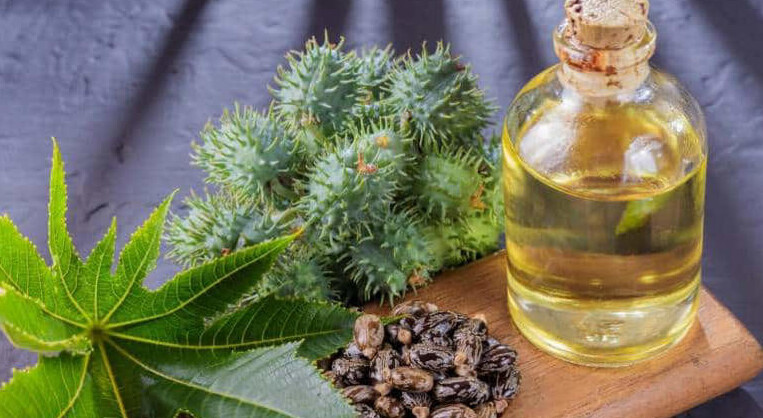Hair growth and healthy tresses are concerns for many. If you want to boost hair growth, strengthen each strand, and maintain a well-nourished scalp, using natural oils in your routine can be a smart choice. I have looked into various oil options that can invigorate your hair care practice, and this article covers several of them along with practical tips and tricks for everyday routines.

Top Oils for Hair Growth: Nature’s Gift
Using natural oils for hair growth is a longstanding tradition across cultures. These oils not only add moisture but can also contribute to strengthening hair, reducing breakage, and rejuvenating your scalp. Below, I cover six oils that are popular for giving a boost to hair growth and overall hair health.
Argan Oil is often named nature’s liquid gold. Filled with antioxidants, vitamin E, and essential fatty acids, it offers hydration and shine without weighing your hair down. It works especially well for dry or damaged hair, leaving a subtle radiance that makes your look next-level cool. Many people have found that regular use of argan oil results in hair that feels softer and more manageable.
Coconut Oil is admired for its ability to protect hair from the inside out. Rich in lauric acid, it penetrates the hair shaft, helping to minimize protein loss and reduce breakage. Frequent use can make hair stronger and more resilient while also locking in moisture. In addition to these benefits, coconut oil can help soothe the scalp and reduce irritation, making it a very important part of a routine for those with sensitive skin.
Castor Oil is known for promoting scalp health. With ricinoleic acid as its key component, it boosts blood circulation in the scalp and creates an environment conducive to hair growth. Its thick consistency helps seal in moisture and minimizes inflammation. Many users have noticed that incorporating castor oil into their routine can significantly reduce issues like scalp dryness and give the hair a fuller appearance.
Jojoba Oil closely resembles the natural oils produced by the scalp. This makes it a balanced option for hydration without being overly greasy. Enriched with vitamin E, it also soothes irritation and helps maintain a healthy scalp. Regular use of jojoba oil can ease the discomfort of scalp conditions and contribute to overall hair quality, making it a popular choice among those who desire a natural approach to hair care.
Rosemary Oil acts as a natural stimulant for the scalp. It increases blood flow and may help reduce thinning while imparting a refreshing, herbaceous scent. When diluted properly and massaged into the scalp, it supports overall hair density and growth, and many users appreciate the invigorating feeling it leaves behind. Its use has been passed down for generations, making it a trusted addition to many hair care regimens.
Olive Oil is a well-known pantry staple that nourishes the scalp with vitamins A and E as well as fatty acids. Its moisturizing qualities leave hair feeling softer and help reduce issues such as dryness and dandruff. Besides these benefits, olive oil also adds a natural gloss to hair, making it look vibrant and healthy.
How to Incorporate These Oils Into Your Daily Routine
Integrating these oils into your hair care routine can be straightforward and rewarding. With everyday habits, a little oil can go a long way in nurturing your locks. Here are some simple ways to use them:
- Scalp Massage: Warm a small quantity of your chosen oil and gently massage it into your scalp. This approach stimulates circulation and helps the oil penetrate deep to the roots. A relaxed, methodical massage can leave you feeling refreshed while also giving your hair the nourishment it needs.
- Overnight Treatment: Apply oil generously and leave it in while you sleep. By allowing ample time for the oil to work, your hair receives intense nourishment and moisture. This method is especially effective for those battling severe dryness, as the extended exposure to the oil creates a barrier that locks in hydration throughout the night.
- Pre-Shampoo Treatment: Using an oil treatment before shampooing can act as a protective barrier against harsh cleansing agents. This minimizes moisture loss during washing and leaves hair looking smoother and silkier afterwards. Experiment with the timing to see what works best for your hair type.
- Add to Hair Masks: Mix a few drops of oil with natural ingredients like honey or aloe vera to create a nutrient boost for your hair. This combination can improve texture and shine as well as offer additional benefits such as antioxidant protection and soothing properties.
Getting Started With Natural Hair Care

Before adding oils to your routine, it helps to understand your hair type and what it needs. Observing your hair and scalp will let you spot which oil or combination works best for you. For those with very dry nourishment needs, richer oils like coconut and castor oil can be very effective. Meanwhile, lighter oils typically work well for individuals prone to an oily scalp condition. This careful observation is the first step toward creating a personalized hair care plan that truly fits your lifestyle.
If you are trying oils for the first time, consider starting with a patch test. Applying a small amount of diluted oil to a discreet area ensures that you avoid unwanted reactions. In many cases, a simple blend of jojoba and rosemary oils can suit even sensitive scalps while invigorating hair follicles, giving you a gentle yet effective introduction to natural hair care.
The gradual introduction of oils into daily grooming can make the application feel natural, and over time, improvements such as reduced breakage and increased shine often become noticeable. Consistency really counts here, and sticking to a regular routine can yield results that boost your confidence and transform your locks.
What to Consider Before Using Hair Oils
While the promise of hair growth may sound simple, there are practical matters to keep in mind. Understanding potential challenges and preparing for them can help you get the best outcomes from your oil treatments. It is very important to be aware of how your hair reacts to different oil types and application methods.
- Oil Buildup: Too much oil can sometimes leave hair feeling heavy and greasy. Learning the right amount to use is important, and regular cleansing helps manage buildup. Balancing oil treatments with a proper cleansing routine is essential for sustaining healthy hair.
- Allergic Reactions: Natural ingredients can still trigger sensitivities in some people. Start slowly and monitor how your skin responds. Performing a preliminary patch test and observing any changes can spare you potential irritation.
- Usage Technique: The method of application significantly influences results. Spread oils evenly and ensure your scalp gets a good massage to boost absorption. An even application guarantees that the full range of benefits is enjoyed without overloading any single part of your scalp.
- Quality of Oil: Not all oils are created equal. Opting for pure, cold-pressed, and unrefined versions often delivers better nourishment than more processed alternatives. Checking product labels and choosing reputable brands is a key step in maintaining optimal hair health.
Managing Oil Buildup
Using natural oils does not mean you should avoid washing your hair. Maintaining a balanced routine that alternates between oil treatments and a good wash with a mild shampoo helps prevent greasiness. It is a balance between hydration and cleanliness. A thoughtful routine that factors in occasional clarifying treatments aids in managing buildup effectively.
Understanding Allergic Reactions
Even though these oils are widely recognized for their benefits, it’s best to check how your skin reacts. Diluting essential oils such as rosemary in a carrier oil can minimize potential irritation. Starting with small amounts and gradually increasing use offers peace of mind and safer results.
The Right Application Technique
Massaging your scalp during oil application is more than just a moment of relaxation; it actively encourages better blood flow. Using a gentle touch when applying oil helps distribute nutrients evenly without causing harm. A light massage not only boosts absorption but also transforms the oiling routine into a soothing ritual that benefits both hair and overall well-being.
Choosing Quality Oils
When shopping for hair oils, be aware that quality matters. Oils that have been refined less often retain more natural benefits. Those who invest in quality products usually note improvements in hair health over time. Informed choices about oil selection can lead to long-term benefits that far exceed short-term gains.
Taking time to consider these points can result in more effective oil-based treatments. Moderation and proper technique work together to maximize benefits while keeping your hair routine simple and achievable. With a balanced approach, the risk of any adverse effects is minimized, and you can enjoy the full spectrum of benefits that natural oils have to offer.
Pro Tips for Maximum Hair Growth Results

Once you become comfortable with using oils, you can adopt some practical tips to further accelerate hair growth and maintain luscious locks. These tips come from a mix of personal experiences and advice passed down through generations.
Customize Oil Blends: Experiment with combinations, such as mixing coconut oil with a few drops of rosemary or argan oil. This personalized approach often produces results that are both unique and effective. It is not just about adding oil; it is about creating a blend that targets your specific needs. Try different ratios until you find a mix that makes your hair feel nourished and refreshed.
Consistency is Key: Regular application over time can lead to noticeable benefits. It may take several weeks to see changes, so patience and persistence really count. Keeping a routine log or making occasional notes about your progress can help you appreciate the incremental improvements over time.
Warm the Oil: Slightly warming the oil before application can help improve its penetration into the scalp. Use a warm water bath or a gentle microwave warm-up to ease the process. Warming the oil not only enhances absorption but also turns the treatment into a comforting ritual that can help calm your mind while you care for your hair.
Monitor Progress: Keeping a routine log or taking occasional photographs of your hair can help you gauge improvements over time. Sometimes the progress is gradual, and tracking it leaves you with a sense of achievement. Being mindful of these small wins reinforces the habit and encourages continuous care for your locks.
Applying these tips consistently not only boosts hair growth but also improves overall hair quality. Experimenting and staying committed can work wonders for your locks, leading to healthier, more vibrant hair in the long run.
Scientific Insights and Personal Experiences
Beyond the basic benefits of natural oils, there are several scientific insights that explain why these treatments work so well. Research has shown that the fatty acids found in oils like coconut and olive play a crucial role in protecting hair structure. These fatty acids help maintain the cuticle—the outer layer of your hair—which in turn minimizes breakage and supports a naturally resilient strand. Studies have also found that oils with anti-inflammatory properties, such as castor oil, can reduce scalp irritation and promote a healthier environment for hair growth.
Personal experiences further validate these findings. Many individuals report not only improved hair texture but also a significant boost in confidence as their hair becomes thicker and more manageable. It is always very important to find what fits your individual needs. For some, a quick scalp massage with jojoba oil is enough to reset the day, while others have developed intricate routines involving overnight treatments and custom oil blends. This blend of scientific research and real-life testimonials makes a strong case for integrating natural oils into your regular hair care practices.
Frequently Asked Questions
Here are some common questions about using oils for hair growth, along with straightforward responses that might help clear up any confusion you may have.
Question: How often should I apply oil to my hair?
Answer: It really depends on your hair type. Generally, applying oil a couple of times a week works well, but those with very dry hair might benefit from more frequent, lighter applications. Adjust your routine until you notice a healthy balance between nourishment and oiliness.
Question: Can I mix different oils together?
Answer: Yes. Blending oils such as coconut and jojoba creates a nutritive mix that caters to multiple aspects of hair care. Experiment in small amounts to ensure you find the ideal combination that works specifically for your hair needs.
Question: Is it necessary to leave oil in my hair overnight?
Answer: Not always. While overnight treatments offer deep nourishment and extended benefits, you can also try a pre-shampoo treatment or leave the oil in for about 30 minutes before washing. The choice depends on the condition of your hair and your daily schedule.
Wrapping Up Natural Hair Nourishment
The best oils for hair growth provide a natural and effective way to nurture your strands. From argan and coconut oil to rosemary and olive oil, each option offers unique benefits like hydration, protection, and stimulation of hair growth. Using these oils correctly combined with proper application techniques and a balanced hair care routine works well to maintain a healthy scalp and boost overall hair quality.
Stumbling upon what works best for you and adapting your routine as your hair goes through its next stage is part of the ride. Enjoy the process and allow nature’s gifts to help nurture your strands naturally. Taking time to experiment and observe small changes can transform your hair care routine into an empowering, fulfilling adventure that not only enhances your appearance but also improves your overall well-being.
Ultimately, the journey to healthier hair is a blend of patience, persistence, and paying attention to what your scalp and strands tell you. By consistently applying these natural oils and using the pro tips listed above, you can expect not just improved hair growth but also a renewed sense of confidence and style. Remember, it isn’t just about the oil—but about the entire ritual of caring for yourself every day. Regularly investing a little time in self-care can lead to lasting positive changes in your hair health and personal wellness.
If you have any doubts or further questions, do not hesitate to ask professionals or seek advice from trusted sources. Your hair care routine is as unique as you are, and tailoring it to suit your specific needs will always yield the best results. Thank you for taking the time to read through these insights, and here’s to a future of fuller, healthier hair!
No responses yet